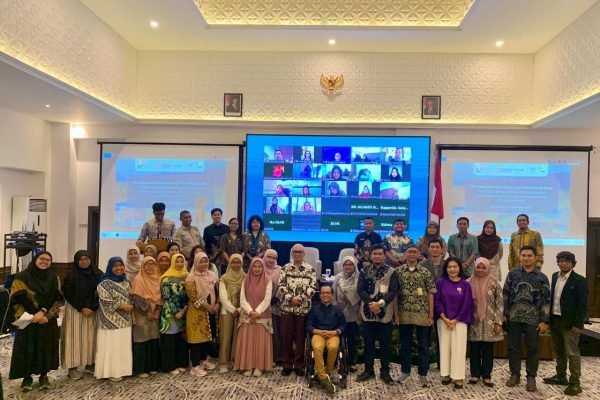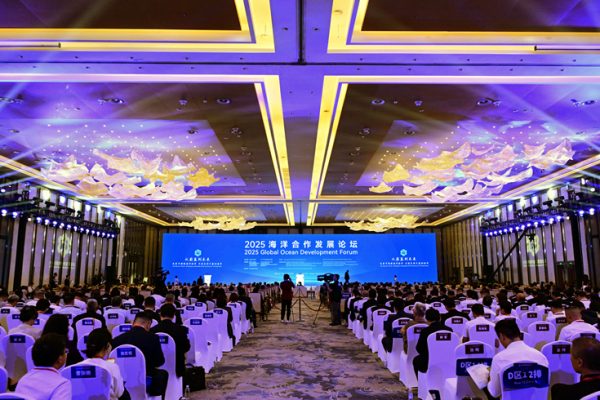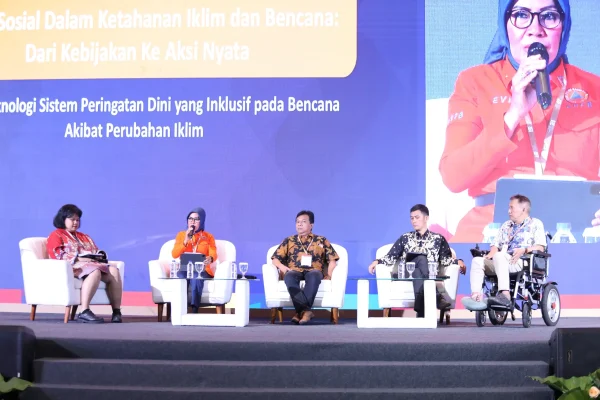The workshop aimed to develop a draft of the Ikhtiar Jakarta, a comprehensive climate action plan for the city.
Jakarta, Indonesia – ICLEI Indonesia, as part of Ambitious City Promises (ACP) project, has been implementing a series of activities to strengthen the involvement of stakeholders in achieving DKI Jakarta’s target to reduce 30% GHG emissions by 2030.
Engaging stakeholders and community groups into the formulation process of a ‘City Promise’ (locally called Ikhtiar Jakarta) has been a focal strategy to gradually increase citizens’ participation in this commitment. Ikhtiar Jakarta outlines the stakeholders’ commitment including the public sector on various urban sectors including energy and green building, transport and air quality, waste management, clean water, green spaces and urban farming, as well as health and disaster management. It is also viewed as an enhancement of Jakarta’s climate change mitigation plan (locally called RAD-GRK).
A total of six public consultations attended by approximately 300 stakeholders in DKI Jakarta were conducted by ICLEI Indonesia from October 2018 to July 2019 to solicit inputs from various stakeholder groups. The formulation workshop, held last 7-8 August 2019, aimed to come up with a list of priority actions for the different urban sectors that will be included in Ikhtiar Jakarta.
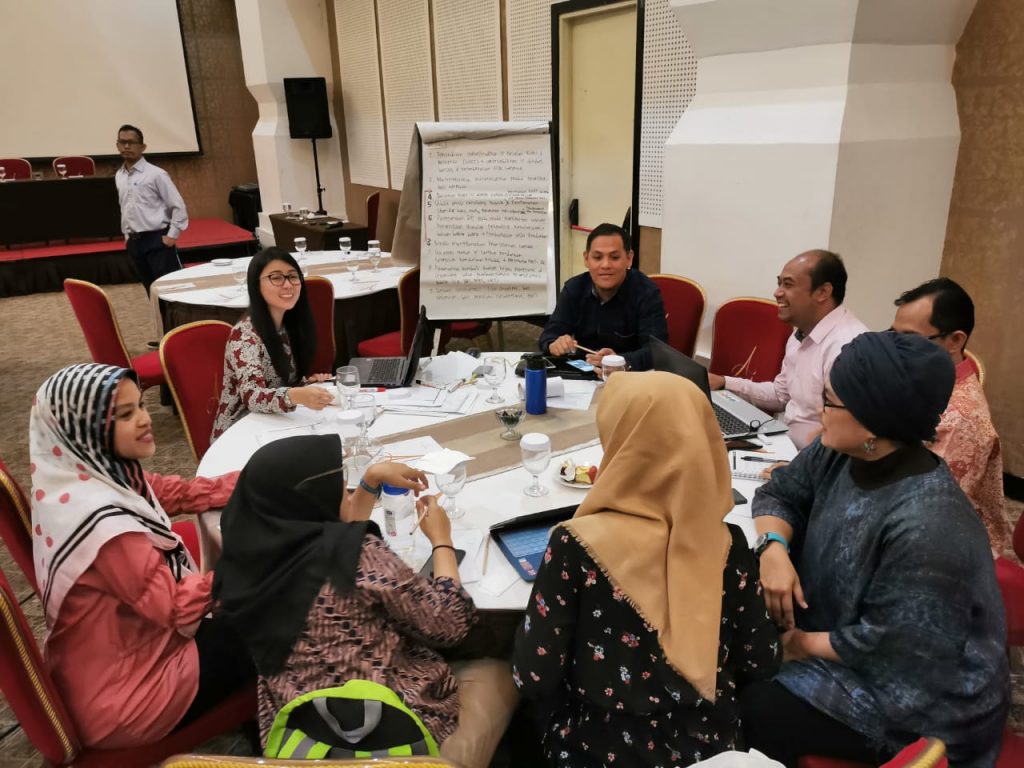
Discussion on Transportation and Air Quality sector
Fifty-two participants representing different segments of the population including the local government, women, youth and children, elderly, persons with disabilities, fishermen, businesses and industry, civil society organizations working on environmental issues, as well as religious and academic groups took part in the discussion and shared ideas and strategies to conduct concrete climate action.
The Climate Actions Prioritisation (CLIMACT Prio) tool, developed by the Institute for Housing and Urban Development Studies (IHS) in the Netherlands was used to assess the different climate mitigation actions. The three most relevant criteria used by the participants in evaluating the actions were 1) GHG emissions and air pollution reduction potential, 2) social inclusion, and 3) availability of facilities to support the action.
Most priority actions focused on education and socialization since DKI Jakarta considers awareness raising on low emission development as an overarching strategy. Results of the prioritization exercise helped identify thematic focus areas per urban sector. For example, energy and green building strategies are centered on energy efficiency and renewable energy. Under transport and air quality, strategies included prioritizing the use of non-motorized transportation as well as infrastructure improvement. On the other hand, the waste sector looked at strengthening sorting and recycling initiatives as well as influencing changes on consumption patterns.
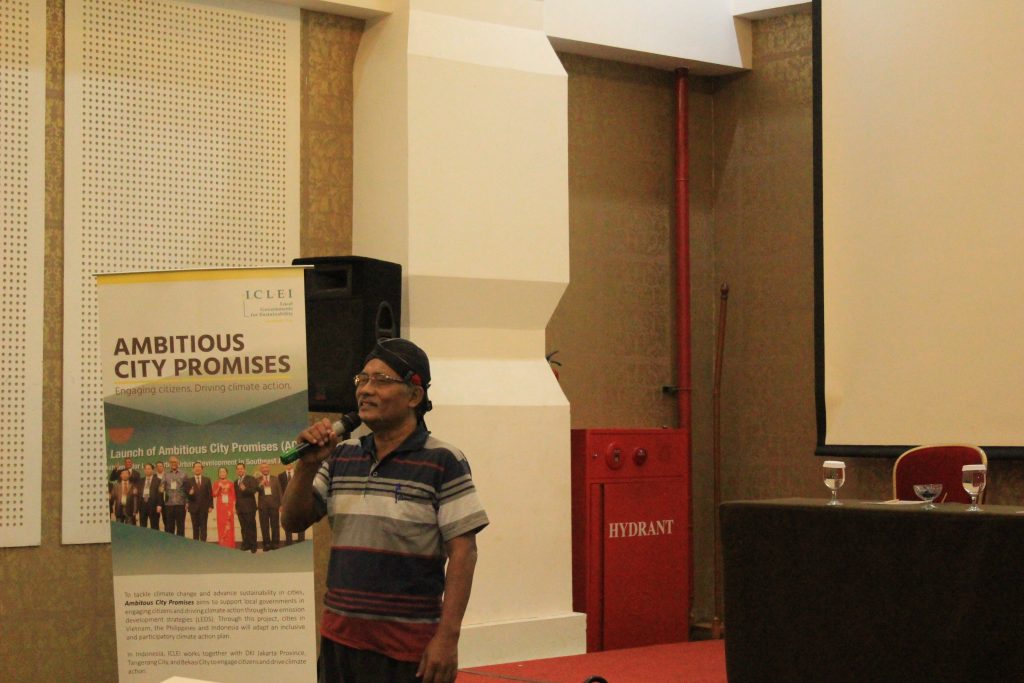
The representative from Waste Bank explained the result of discussion from Energy and Green Building Sector
As a next step, ICLEI Indonesia will work toward the development of an offline platform that aims to enable stakeholders of DKI Jakarta to register their pledges towards a more sustainable lifestyle and to further support the implementation of Ikhtiar Jakarta.
The ACP project is a 3.5 year international project funded by the German Federal Ministry for the Environment, Nature Conservation, and Nuclear Safety (BMU) through the International Climate Initiative (IKI) program. It is implemented by ICLEI-Local Governments for Sustainability in close cooperation with the Seoul Metropolitan Government. The project commits to reduce GHG emissions through participatory and inclusive local climate actions in selected cities in Indonesia, the Philippines, and Vietnam. The formulation of a City Promise is one of the ACP’s core project outputs.


